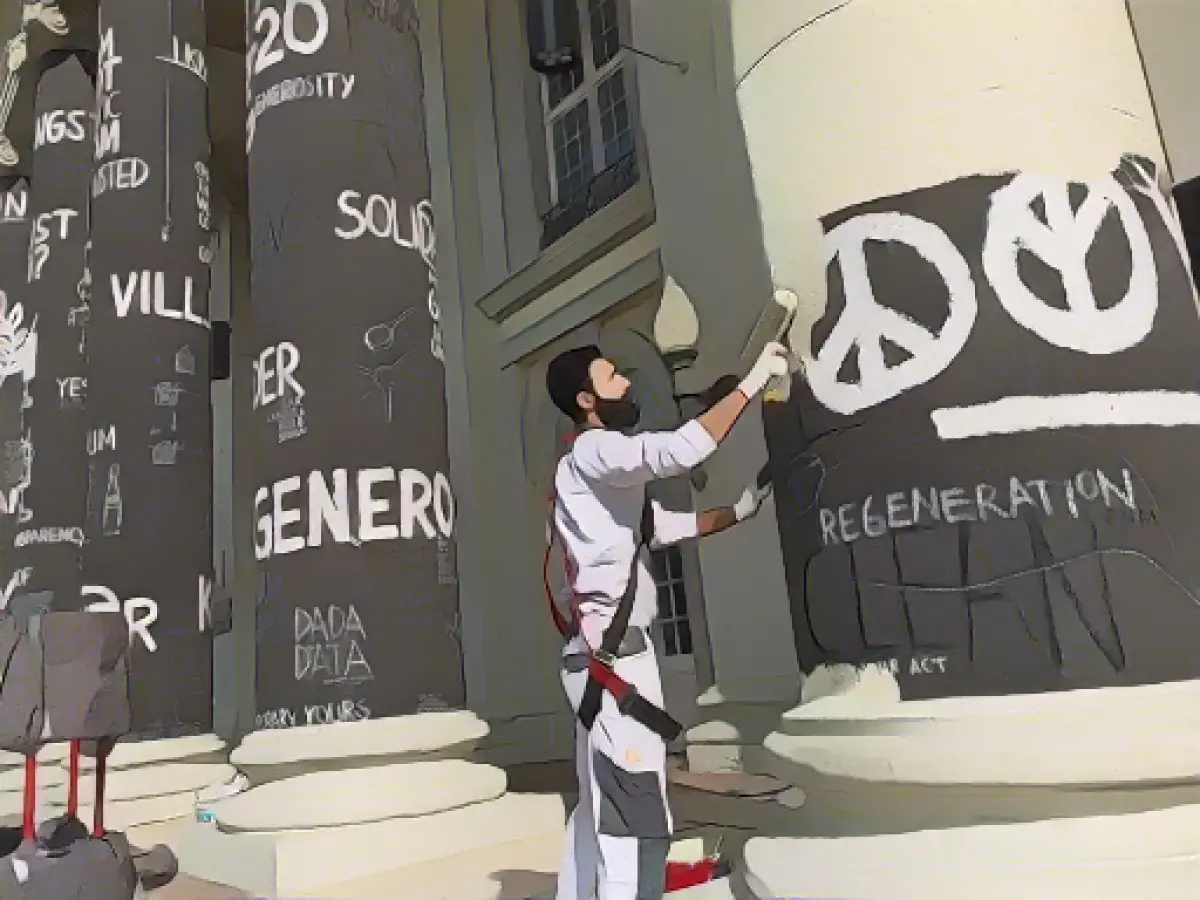From "devastating" to "shambles": Trouble over documenta
The documenta never comes to rest. Years before the next edition of the internationally acclaimed art show, the dispute begins. The fact that it came to blows even earlier this time and is even rougher is not due to Kassel, but to the Middle East.
"The fundamental problem is that the culture of debate has completely slipped out of our hands," says Nicole Deitelhoff. The academic headed the committee that was tasked with dealing with the anti-Semitism scandal after documenta fifteen. After the Hamas attacks on Israel on October 7, the discourse situation came to a head once again. "It's now impossible to talk to each other at all. Every word is weighed in the balance and leads to people being put in a corner at breathtaking speed."
The corners: On the one hand, there are the pro-Israeli voices that are sensitive to anti-Semitic tones and anything that questions Israel's right to exist, such as the BDS boycott movement. On the other side are the pro-Palestinian voices, which, according to Deitelhoff, are overrepresented in the cultural scene. A series of debates are currently being sparked along these lines of conflict, most recently at the Frankfurt Book Fair, for example, where the award ceremony for a Palestinian author was postponed and a pro-Israeli opening speech caused a riot in the hall.
What happened?
This climate was also felt by the selection committee tasked with choosing a new artistic director for the next documenta 2027. First one participant dropped out, then another, and on Thursday the remaining four also gave up. The reason they gave was "the polarized debates", which put their work under increasing pressure.
In the meantime, not even the date of the next documenta has been set. Traditionally, it takes place every five years. "In the current situation, the question of timing is not the top priority," said Managing Director Andreas Hoffmann. "It's about leading the documenta into a good future."
Politicians spoke on Friday of a "shambles", Deitelhoff finds the situation of documenta "devastating". It will probably be difficult to find new candidates for the selection committee. It will be all the more difficult to find curators who have the confidence to take on such a mammoth project in this climate. Especially when you have to carry the legacy of documenta fifteen, which was about to be canceled due to anti-Semitic artworks.
What happens now in Kassel?
"We now need a credible new start," demanded Minister of State for Culture Claudia Roth (Greens). She added that the federal government was prepared to help with the reorganization. Roth said that she very much welcomed the fact "that documenta GmbH is first dealing with its own fundamental redefinition and structural reform before planning for the 2027 edition begins". The federal government is prepared to work on a reorganization.
The shareholders of documenta - the state of Hesse and the city of Kassel - say they want to rebuild the trust that has been lost. The first step is to restart documenta's "operating system", says Managing Director Hoffmann. The organizational structure is currently being scrutinized. With the help of external experts, they are looking at responsibilities, structures and processes. Only when this reorganization process has been completed will it be possible to take the next step and start the discovery process again.
And how do we get out of the debate loop?
"The current conflict surrounding documenta cannot be seen in isolation from the situation in the international art world," analyzes Meron Mendel, Director of the Anne Frank Educational Center. "The debates about anti-Semitism, Israel and the Middle East conflict are dividing the scene." Artists in Germany are faced with a dilemma. "They are partly dependent on the international art market and therefore don't dare to take a differentiated position."
For Mendel, however, bans cannot be the solution either. "Instead, a consensus must be reached with the management of cultural institutions that opposes all forms of exclusion." Decision-makers such as curators, museum directors or members of selection committees must be "equally open to all artists, regardless of their origin or national affiliation".
"We need art more than ever," says Minister Roth. "We need protected spaces for art, we need its debates and impulses for an open society." documenta Managing Director Hoffmann also emphasizes that debates "are part of documenta's DNA". Deitelhoff finds it problematic when the impression is created that artistic freedom is under threat. "The answer cannot be that we allow a little anti-Semitism."
The impasse surrounding documenta has also affected art exhibitions, with many artists and curators avoiding engagement with sensitive topics due to the fear of backlash. This reluctance is evident in the shrinking pool of candidates willing to take on major roles in the art world, as demonstrated by the resignations from the selection committee for documenta 2027.
The current state of affairs in the art world has led some to question the future of documenta and other similar events, with many calling for a renewed commitment to artistic freedom and open dialogue. In this context, governments and cultural institutions have a crucial role to play in fostering an environment conducive to artistic freedom and the free exchange of ideas, ensuring that the concept of art as a driving force for societal progress is not lost.
Source: www.dpa.com








